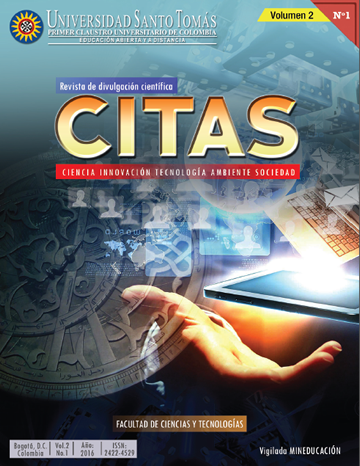El papel de la tecnología desde la perspectiva de Hanna Arendt
The role of the technology from the perspective of Hanna Arendt
Abstract (en)
This article of reflection are looking for a delimitation of the term technology, its conceptual demarcation and its relationship with the world employment and production, from the statements made by theoretical policy German of Jewish origin Hannah Arendt in her book the Human Condition, in particular in chapter IV: “The work”, which raises the supremacy of the homo laborans about homo faber, from a criticism of the anthropocentric utilitarianism of Kant and Protagoras is reflected in actions and proceedings of the homo faber of the contemporary world, to conclude on the importance of the interdisciplinary relationship between science - technical - technology within the processes of development of contemporary societies and the use of technology as a means, not as an end of power survival and quality of life.Abstract (es)
References
Arendt, H. (2009). La condición humana. Buenos Aires: Paidós.
Grosfoguel, R. (2007). Descolonizando los universalismos occidentales: el pluri-versalismo transmoderno decolonial desde aimé césaire hasta los zapatistas. En: S. Castro-Gómez, El giro decolonial. Reflexiones para una diversidad epistémica más allá del capitalismo global (págs. 63-78). Bogotá: Siglo del Hombre Editores.
Heidegger, M. (2007). La pregunta por la técnica y otros textos. Barcelona: Ediciones Folio S.A.
Kranzberg, M. (1991). Science-Technology- Society: It’s as Simple as XYZ! Theory into Practice, 234-241.
Kuhn, S. (1962). La estructura de las revoluciones científicas. Mexico: Fondo de Cultura Económica.
Maiztegui, A. y. (2002). Papel de la tecnología en la educación científica: una dimensión olvidada. Revista Iberoamericana de Educación, 28-53.
Ministerio de Educación Nacional. (1996). Educación en tecnología: una nueva respuesta para una nueva educación. Bogotá, D.C.: Ministerio de Educación Nacional.
Platón. (2003). Leyes. Diálogos. Madrid: Gredos.
Uicich, S. (2008). Trabajo y tecnología en la crítica de Arendt a Marx ¿la revolución (im)posible? Bahía Blanca: Universidad Nacional del Sur.
Zabala, A. (1999). Enfoque globalizador y pensamiento complejo. Una respuesta para la comprensión e intervención en la realidad. Madrid: Editorial Graó.
How to Cite
License
The authors sign a transfer of rights so that Universidad Santo Tomás can publish the articles under the conditions described below. The authors, readers and other users are free to share, copy, distribute, perform and publicly communicate the work under the following conditions:
-
Attribution — You must give appropriate credit, provide a link to the license, and indicate if changes were made. You may do so in any reasonable manner, but not in any way that suggests the licensor endorses you or your use.
-
NonCommercial — You may not use the material for commercial purposes.
-
ShareAlike — If you remix, transform, or build upon the material, you must distribute your contributions under the same license as the original.
No additional restrictions — You may not apply legal terms or technological measures that legally restrict others from doing anything the license permits.
CITAS is licensed under Creative Commons Attribution-NonCommercial-ShareAlike 4.0 International (CC BY-NC-SA 4.0).

Until 2019 the documents published in the magazine were under the Creative Commons Attribution-ShareAlike license (CC BY-SA), however, in order to guarantee the open and free distribution of the content published in the magazine, it was decided to change the type Commons Attribution-NonCommercial-ShareAlike 4.0 International license (CC BY-NC-SA 4.0)






